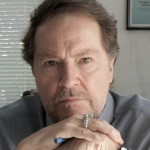Q: DO I NEED A PERMIT IN ORDER TO CONDUCT A PROTEST?
A: As a general rule, no. The government cannot require that individuals or small groups obtain a permit in order to speak or protest in a public forum. However, if persons or organizations want to hold larger rallies and demonstrations, they may be required by local laws to obtain a permit.
Q: WHAT CAN'T I DO IN EXERCISING MY RIGHTS TO PROTEST?
A: The First Amendment protects the right to conduct a peaceful public assembly. The First Amendment does not provide the right to conduct a gathering at which there is a clear and present danger of riot, disorder, interference with traffic on public streets or other immediate threat to public safety.
Q: AM I ALLOWED TO CARRY A WEAPON OR FIREARM AT DEMONSTRATION OR PROTEST?
A: Your right to have a weapon at a protest largely depends state law and is unlikely to be protected by the First Amendment. Not all conduct can be considered "speech" protected by the First Amendment even if the person engaging in the conduct intends to express an idea. Most courts have held that the act of openly carrying a weapon or firearm is not expression protected by the First Amendment.
That said, even if possession of weapons is allowed, their presence at demonstrations and rallies can be intimidating and provocative and does not help in achieving a civil and peaceful discourse on issues of public interest and concern.
Q: WHAT CAN'T THE POLICE DO IN RESPONDING TO PROTESTERS?
A: In recent history, challenges to the right to protest have come in many forms. In some cases, police have cracked down on demonstrations by declaring them "unlawful assemblies" or through mass arrests, illegal use of force or curfews. Elsewhere, expression is limited by corralling protesters into so-called "free-speech zones." New surveillance technologies are increasingly turned on innocent people, collecting information on their activities by virtue of their association with or proximity to a given protest. Even without active obstruction of the right to protest, police-inspired intimidation and fear can chill expressive activity and result in self-censorship. All of these things violate the First Amendment and are things the police cannot do to censor free speech. Unless the assembly is violent or violence is clearly imminent, the police have limited authority under the law to shut down protesters.
Clearly, as evidenced by the recent tensions in Charlottesville, Va., we're at a crossroads concerning the constitutional right to free speech.
Yet as Benjamin Franklin warned, "Whoever would overthrow the liberty of a nation must begin by subduing the freeness of speech."
As I make clear in my book Battlefield America: The War on the American People, ensuring freedom for those in the unpopular minority constitutes the ultimate tolerance in a free society.
If ever there were a time for us to stand up for the right to speak freely, even if it's freedom for speech we hate, the time is now.
(Note: You can view every article as one long page if you sign up as an Advocate Member, or higher).





